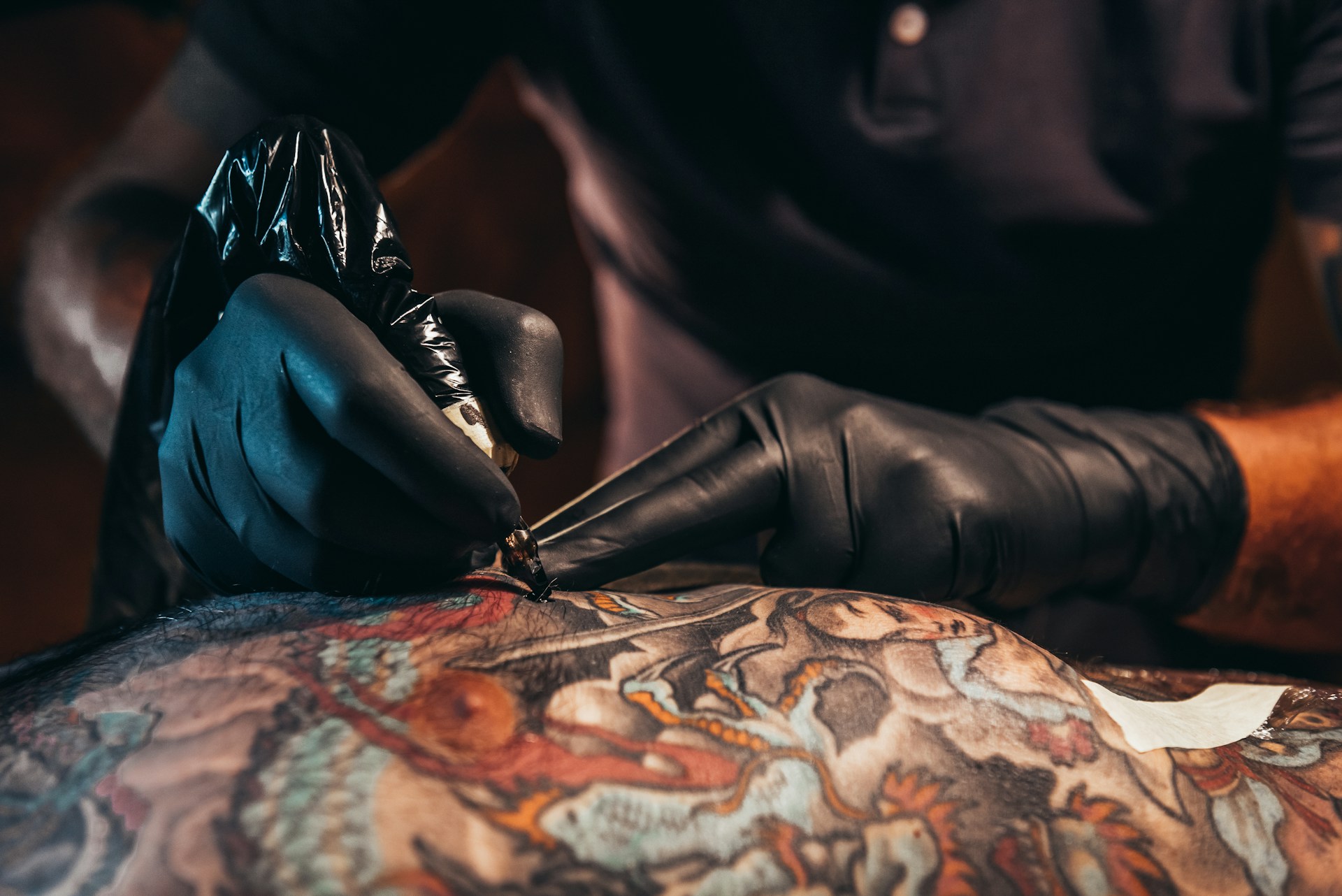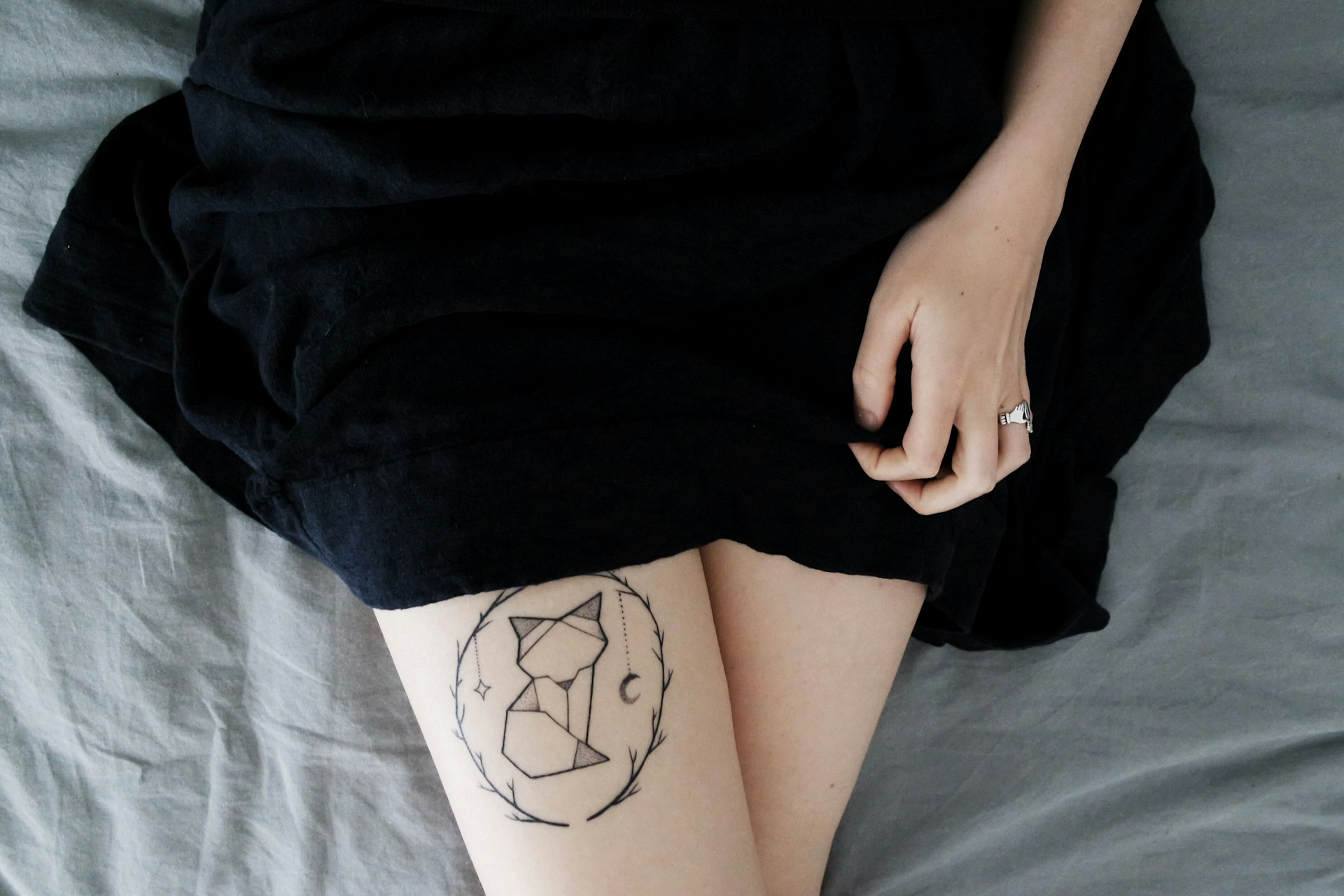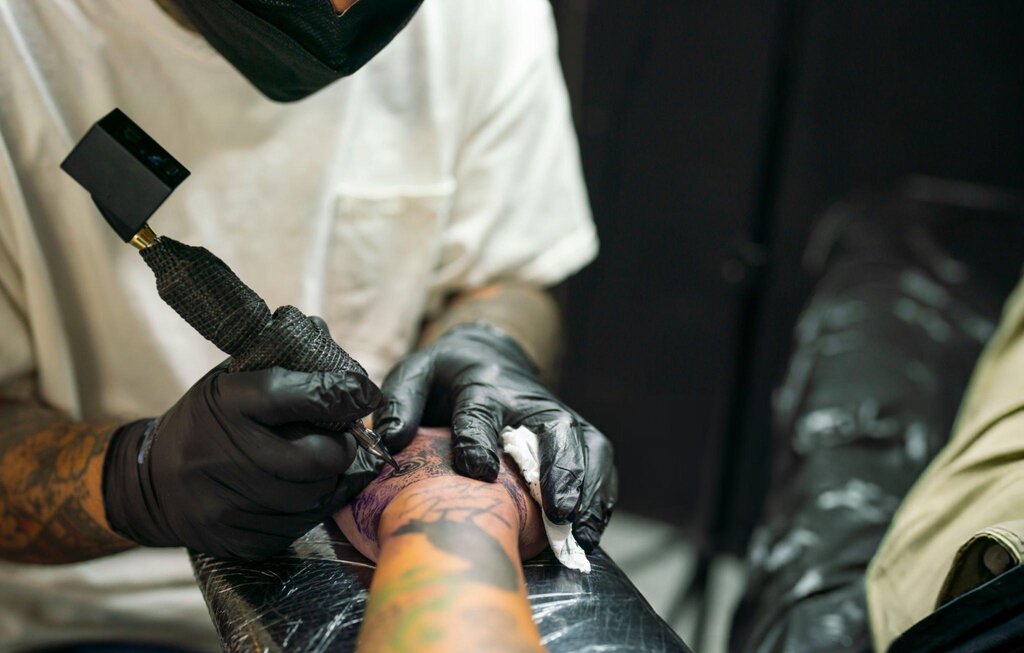Your tattoos’ look may alter with significant weight loss or gain, becoming drooping, off-kilter, or stretched and faded. Remember that your skin is the largest organ in your body. A tattoo may be stretched and contracted to match your needs, but it is not as adjustable.
Lines may no longer align as well as they used to. Depending on the location, the tattoo may shift somewhat.
How Losing Weight Affects Tattoos:
When it comes to weight reduction, the size and placement of your tattoo will be the most visible changes in its composition. If you have a tattoo on the side of your thigh and then lose a large amount of weight, the tattoo’s placement may shift.
The skin of the thigh is elastic and will be able to accommodate the change. There is a possibility that the tattoo may look different, and you may have to “re-ink” the areas that have moved. Re-inking is a common practice after a drastic weight loss or gain.
How Weight Gain Affects Tattoos:
If you put weight around an existing tattoo, the outline will become thicker and more pronounced. Unless you had some excess ink put into the tattoo, the lines could become distorted because of the extra fat.
A tattoo artist can sometimes help you redesign your tattoo to have thinner lines, potentially correcting the distortion, but it’s not a guarantee.
Factors That Affect How The Tattoo Responds to Weight Change
1. Location
Your tattoo’s placement will significantly impact how much it changes as your body evolves. Weight loss will have a negligible impact on tattoos on the hands, wrists, feet, ankles, and back of the neck.
2. Time Frame
The tattoo’s age will also play a role in its effect. Newer tattoos are more likely to respond favorably to fluctuations in weight. Older tattoos tend to hold onto weight.
3. Tattoo Size
Tattoos that cover large areas, or are very elaborate, are more likely to look different after body changes.
4. Tattoo Color
Tattoos in multi-colored ink can fade much more quickly than black ink.
5. Skin Type
Tattoos in people with thinner skin are more likely to respond to body changes than people with thicker skin.
How to Deal With Tattoo Distortions
Having your tattoo repositioned to fit the new contours of your body is an option. This can be an expensive option, depending on the required amount of work.
You may be able to correct the effects of weight loss with just a re-ink. Your tattoo artist can adjust the area to fit the new contour of your body.
Losing weight can have a significant effect on the appearance of your tattoo. If you recently had a significant weight loss, it may be best to leave your tattoo alone for the time being.
The changes that weight loss can have on your tattoo can vary from person to person. Tattoo distortion can be a tough thing to accept after you’ve had a tattoo in place for years.
Conclusion
The changes that occur in the body can have a negative effect on your tattoo. While most people enjoy the benefits of body enhancement, some people don’t realize how it can affect their tattoos.
A tattoo can be an attractive and attractive accessory, even after your body has undergone a significant amount of change. The quality of your tattoo is based on the state of your skin when you have it applied to your body.
The best way to ensure that your tattoo retains its original look is to keep the area healthy and nourished along with a healthy lifestyle.
If you’re looking for the best tattoo shop in Buffalo, NY, look no further than Lucky Deville Tattoo Co. We are home to the finest artists in the area and adhere strictly to proper health practices to keep our customers safe. Call or visit us today to finally get that ink.



